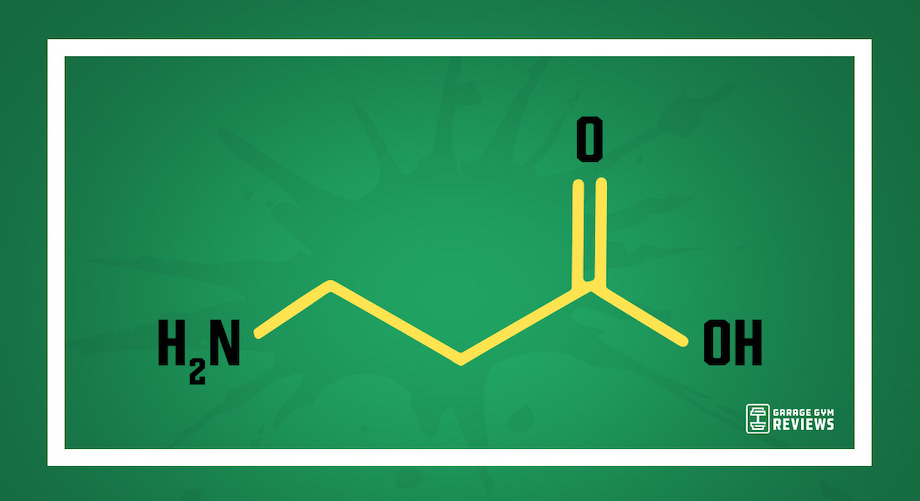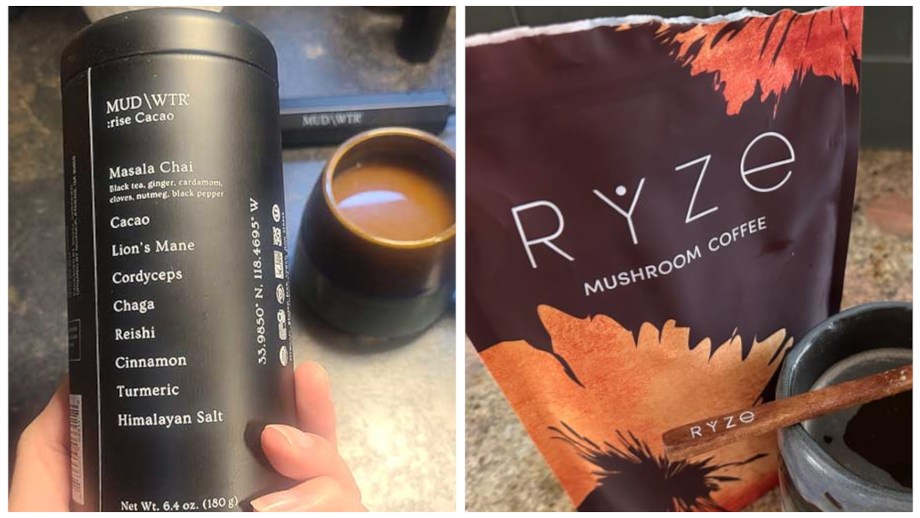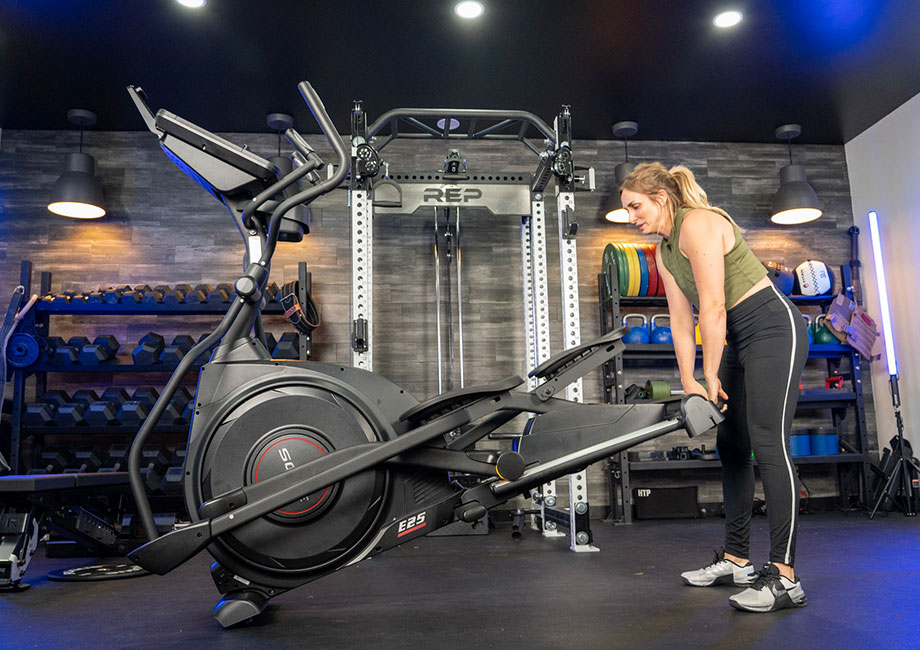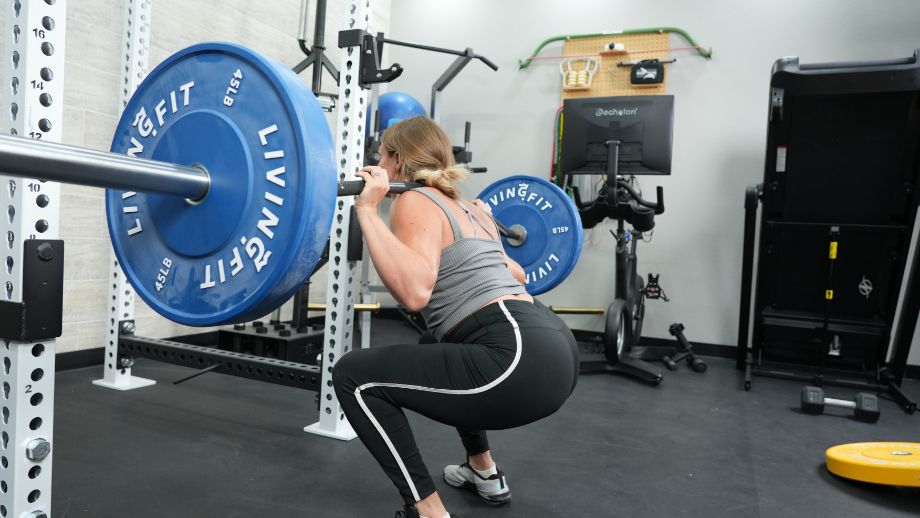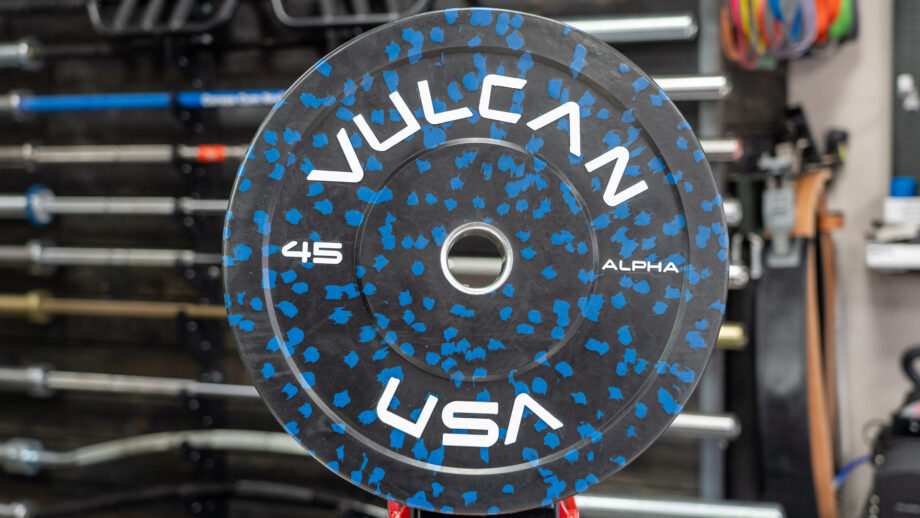The amino acid beta-alanine has caught some popularity among researchers, especially as it relates to enhancing athletic performance. Amino acids1 are the building blocks for the macronutrient protein. Classified as either non-essential or essential—non-essential amino acids are naturally produced by your body, while essential amino acids are not. Therefore, essential amino acids must come from our diet to help us maintain normal bodily functions.
There are 20 total amino acids and beta-alanine2 is among those that are deemed non-essential. This is due to the fact that beta-alanine is naturally produced by your liver. There are many researched benefits associated with beta-alanine supplementation. However, the risk for toxicity and its associated symptoms have been discovered, as well.
RELATED: Best BCAAs
Have you been wondering, “what is beta-alanine?” and are curious if this dietary supplement fits into your health and fitness goals? Continue reading below to find out for yourself.
Medical disclaimer: This article is intended for educational and informational purposes only. It is not intended as a substitute for medical advice. For health advice, contact a licensed healthcare provider.
Why Do People Take Beta-Alanine?
The short answer is that beta-alanine is believed to improve exercise performance2. Supplementation of beta-alanine may delay how quickly you experience muscle fatigue and encourage a faster recovery3 from repetition of high-intensity workouts.
Many gym goers use creatine supplementation to boost sports performance and help with muscle cell recovery. However, one research study found that when creatine supplements are paired with beta-alanine, there is significant improvement in not only lean muscle mass but also body fat percentage⁴. This study also established that the creatine and beta-alanine combo led to a greater overall muscle strength in its participants, when compared to those participants only taking creatine and those receiving a placebo.
RELATED: Best Creatine supplements
Increased Muscular Endurance
There are conflicting outcomes in research studies with regard to muscle endurance and beta-alanine supplementation. However, the one consensus that is seen study to study is that beta-alanine supplementation is going to be more beneficial to a trained individual—particularly athletes and fitness professionals.

One study found that beta-alanine improved endurance performance and prolonged time to fatigue experienced by the participants, when compared to those receiving a placebo⁵. This study observed a significant improvement for high-intensity anaerobic exercises and an overall reduction in neuromuscular fatigue.
On the contrary, another study determined that there was no significant relationship found between beta-alanine supplementation and endurance⁶. This particular study also reviewed lactic acid response time in its participants and found that there was no correlation between it and beta-alanine.
So, does beta-alanine increase muscle endurance? More definitive research is needed with clearer participant parameters to make a final call.
May Help Short-Duration Exercises
Despite the contradictions observed in research above, a common theme found among researchers is that beta-alanine supplementation is linked to positively improving short-duration exercises and hold little to no value for those performing long-duration exercises.
One study found that combining beta-alanine and caffeine pre-workout could improve short-duration exercise capacity⁷. Mirroring that study is another one that agrees that short-term exercises could be enhanced by beta-alanine supplementation⁸. However, this study also found that beta-alanine did not help its participants with long-duration exercise routines.
A study focusing on resistance training, found that supplementing with beta-alanine led to no performance effects⁹. Those researchers concluded that beta-alanine supplementation did not impact endurance, performance, nor body composition. More research is needed to determine which short-duration, high-intensity exercises beta-alanine supplementation would help the most with.
Reduces Fatigue
Many studies agree that beta-alanine does help to reduce or prolong fatigue onset10. When working out, fatigue onset can be determined by how often your skeletal muscle relaxes compared to your total energy exerted.

Beta-alanine is believed to minimize how often your muscles contract. Thus, delaying fatigue, preventing or slowing acidosis, and increasing glucose absorption. Research has found that supplementing with beta-alanine delays fatigue by increasing the concentration of the foundational protein found in muscle: carnosine11.
Improved Athletic Performance
Most studies agree that supplementing with beta-alanine, specifically in those who are well-trained, can enhance athletic performance12. This athletic performance enhancement is distinctly for short-duration workouts, as long-duration workouts do not observe the same benefits. These short-duration workouts in which you will see an enhancement should last anywhere from 30 seconds to 10 minutes total—as observed in sprinters. The athletic performance improvement noticed is less fatigue due to less muscle contraction, better pH control within your muscle mass via its buffering capacity, and an antioxidative effect from a rise in muscle cell carnosine concentrations.
RELATED: How to Run Faster
How Does Beta-Alanine Work?
When amino acids beta-alanine and l-histidine combine, they create the dipeptide carnosine. Muscle carnosine levels are found to be particularly high in lean tissue, but is also found in brain tissue and our gastrointestinal tracts. Muscle carnosine is well-researched for its antioxidant scavenger ability to respond to oxidative stress13. Oxidative stress is present when working out, especially during high-intensity bursts and repetition of exercises. What does this have to do with beta-alanine though?
Supplementation of beta-alanine physiologically changes the amount of carnosine present within your muscles! Beta-alanine serves as the rate-limiting step for carnosine synthesis14. With elevated beta-alanine levels, also comes carnosine’s enhanced ability to act on your pH with its buffering capacity by altering intracellular hydrogen ions and better regulating calcium levels—both of which directly impact muscle fatigue and damage.
Despite it being a popular research topic, the actual pathway for how beta-alanine increases carnosine content is still unclear. However, several advantageous functions have been determined for beta-alanine supplementation in response to muscle fatigue and exercise endurance.
Beta-Alanine Dosage Recommendations
Researchers have proposed different doses to take advantage of beta-alanine’s effects. The International Society of Sports Nutrition suggests that supplementing with approximately 4 to 6 grams for a minimum of 2 to 4 weeks, helps to improve your exercise performance2. To prevent a buildup, researchers suggest split dosing the amount of beta-alanine you consume throughout the day, to limit and prevent side effects associated with high doses of beta-alanine12.
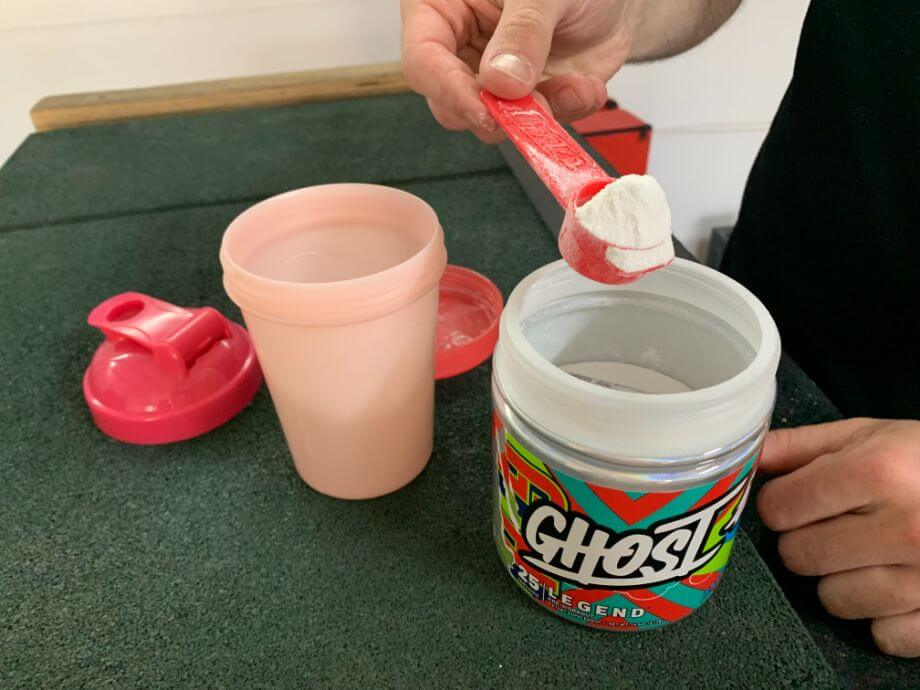
To split dose beta-alanine, consider taking 0.8 to 1.6 grams every 4 hours until you achieve the recommended total daily amount. You can also find this sports supplement in sustained release capsules that slow the rate at which your body absorbs it. You should practice caution when supplementing with this amino acid. If you intake more than 8 grams in a day, you could experience paresthesia, among other side effects from the high concentrations.⁵
Risks of Taking Beta-Alanine Supplements
Have you ever fallen asleep on your arm only to wake up with numbness, a tingling sensation, or have the feeling of pins and needles? That is paresthesia15. Paresthesia is a prickling sensation that is painless and often feels like your skin is crawling when the overall feeling starts to return to that part of your body. High doses of beta-alanine can lead to paresthesia12. Over-supplementing with beta-alanine can also lead to itching and skin rashes. Although these symptoms are uncomfortable, they can be mitigated and avoided by split-dosing or using a sustained release supplement as described above.
Can You Get Beta-Alanine from Food?
As mentioned above, beta-alanine is a non-essential amino acid produced by the liver. This means that it naturally occurs in our bodies and we do not necessarily have to get this amino acid from dietary sources. However, if you are interested in ingesting beta-alanine via whole food sources versus supplements—it is found in meat. The top dietary sources of beta-alanine are: fish, chicken, turkey, beef, and pork2.
Beta-Alanine: Final Thoughts
Research regarding the health benefits associated with beta-alanine is conflicting. However, despite the research gaps surrounding this non-essential amino acid, there are a few concepts that are found study to study.
- Supplementation benefits may be better observed in those who are well-trained athletes.
- It can delay the onset of fatigue caused by lactate by decreasing muscle contraction frequency and preserving ATP.
- You may experience a sports performance enhancement if completing short-duration workouts.
- Split dosing or using sustained release supplements throughout the day can prevent associated symptoms from a high concentration.
- More research is needed to fine tune how and who beta-alanine supplementation works best for.
What is Beta-Alanine: Q&A
What does beta-alanine do for you?
Beta-alanine may improve your short-duration, high-intensity exercise performance12. By supplementing with beta-alanine, you may decrease your onset of fatigue, prolong your workout, and possibly improve muscular endurance. Research is still needed to further determine which exercises beta-alanine would provide the most benefits to.
Is it OK to take beta-alanine every day?
Too much of a good thing, can become a bad thing. The recommended amount of beta-alanine daily is 4 to 6 grams for exercise benefits2. You should not exceed 8 grams of beta-alanine—even in a single, one time dosing—due to the risk of experiencing paresthesia, rashes, and itching⁵.
Is beta-alanine a creatine?
No, beta-alanine and creatine are two very different non-essential amino acids. Beta-alanine is a stand-alone, singular amino acid. While creatine is more complex and composed of the three amino acids glycine, arginine, and methionine16. There is actually more research that supports the use of creatine as an exercise enhancer versus beta-alanine. When compared to beta-alanine, creatine has less contradicting research outcomes with regard to performance enhancement, muscle strengthening, and preventing injuries.
When should you take beta-alanine?
Unlike other workout-related supplements, there is no established correlation between the timing of taking beta-alanine as a post- or pre-workout supplement. Most research suggests that effects of beta-alanine supplementation are going to be best observed after taking 4 to 6 grams daily for 2 to 4 weeks12. This outcome suggests that if you are using beta-alanine to improve your short-duration performance, you should supplement within the 2 to 4 week timespan of the anticipated exercise.
These statements have not been evaluated by the Food and Drug Administration. This product is not intended to diagnose, treat, cure, or prevent any diseases.
References
- Amino acids. National Human Genome Research Institute. https://www.genome.gov/genetics-glossary/Amino-Acids#:~:text=A%20protein%20consists%20of%20one%20or%20more%20chains,polypeptides%29%20whose%20sequence%20is%20encoded%20in%20a%20gene. Published April 18, 2023. Accessed April 21, 2023.
- Trexler ET, Smith-Ryan AE, Stout JR, et al. International society of sports nutrition position stand: beta-alanine. J Int Soc Sports Nutr. 2015;12(1). doi: 10.1186/s12970-015-0090-y
- Bellinger PM. β-alanine supplementation for athletic performance: an update. J Strength Cond Res. 2014;28(6):1751-1770. doi: 10.1519/JSC.0000000000000327
- Hoffman J, Ratamess N, Kang J, et al. Effect of creatine and β-alanine supplementation on performance and endocrine responses in strength/power athletes. Int J Sport Nutr Exerc Metab. 2006;16(4):430-446. doi: 10.1123/ijsnem.16.4.430
- Artioli GG, Gualano B, Smith A, et al. Role of beta-alanine supplementation on muscle carnosine and exercise performance. Med Sci Sports Exerc. 2010;42(6):1162-1173. doi:10.1249/MSS.0b013e3181c74e38
- Jagim A, Wright G, Brice G, et al. Effects of beta-alanine supplementation on sprint endurance. J Strength Cond Res. 2013:27(2):526-532. doi: 10.1519/JSC.0b013e318256bedc
- Collins PB, Earnest CP, Dalton RL, et al. Short-term effects of a ready-to-drink pre-workout beverage on exercise performance and recovery. Nutrients. 2017;9(8):823. doi: 10.3390/nu9080823
- Rosas G, Ramirez-Campillo R, Marinez C, et al. Effects of plyometric training and beta-alanine supplementation on maximal-intensity exercise and endurance in female soccer players. J Hum Kinet. 2017;58:99-109. doi: 10.1515/hukin-2017-0072
- Smith CR, Harty PS, Stecker RA, et al. A pilot study to examine the impact of beta-alanine supplementation on anaerobic exercise performance in collegiate rugby athletes. Sports. 2019;7(11):231.doi: 10.3390/sports7110231
- Jones RL, Barnett CT, Davidson J, et al. β-alanine supplementation improves in-vivo fresh and fatigued skeletal muscle relaxation speed. Eur J Appl Physiol. 2017;117:867–879. Doi: 10.1007/s00421-017-3569-1
- Varanoske AN, Hoffman JR, Church DD, et al. β-alanine supplementation elevates intramuscular carnosine content and attenuates fatigue in men and women similarly but does not change muscle L-histidine content. Nut Res. 2017;48:16-25. doi: 10.1016/j.nutres.2017.10.002
- Peeling P, Binnie MJ, Goods PS, et al. Evidence-based supplements for the enhancement of athletic performance. Int J Sport Nutr Exerc Metab. 2018;28(2):178-187. doi:10.1123/ijsnem.2017-0343
- Jukić I, Kolobarić N, Stupin A, et al. Carnosine, small but mighty – prospect of use as functional ingredient for functional food formulation. Antioxidants. 2021;10(7):1037. doi: 10.3390/antiox10071037
- Blancquaert L, Everaert I, Derave W. Beta-alanine supplementation, muscle carnosine and exercise performance. Curr Opin Clin Nutr Metab Care. 2015;18(1):63-70. doi:10.1097/MCO.0000000000000127
- Paresthesia. National Institute of Neurological Disorders and Stroke. https://www.ninds.nih.gov/health-information/disorders/paresthesia. Reviewed January 20, 2023. Accessed April 23, 2023.
- Kreider RB, Kalman DS, Antonia J, et al. International society of sports nutrition position stand: safety and efficacy of creatine supplementation in exercise, sport, and medicine. J Int Soc Sports Nutr. 2017;14:1. doi: 10.1186/s12970-017-0173-z


